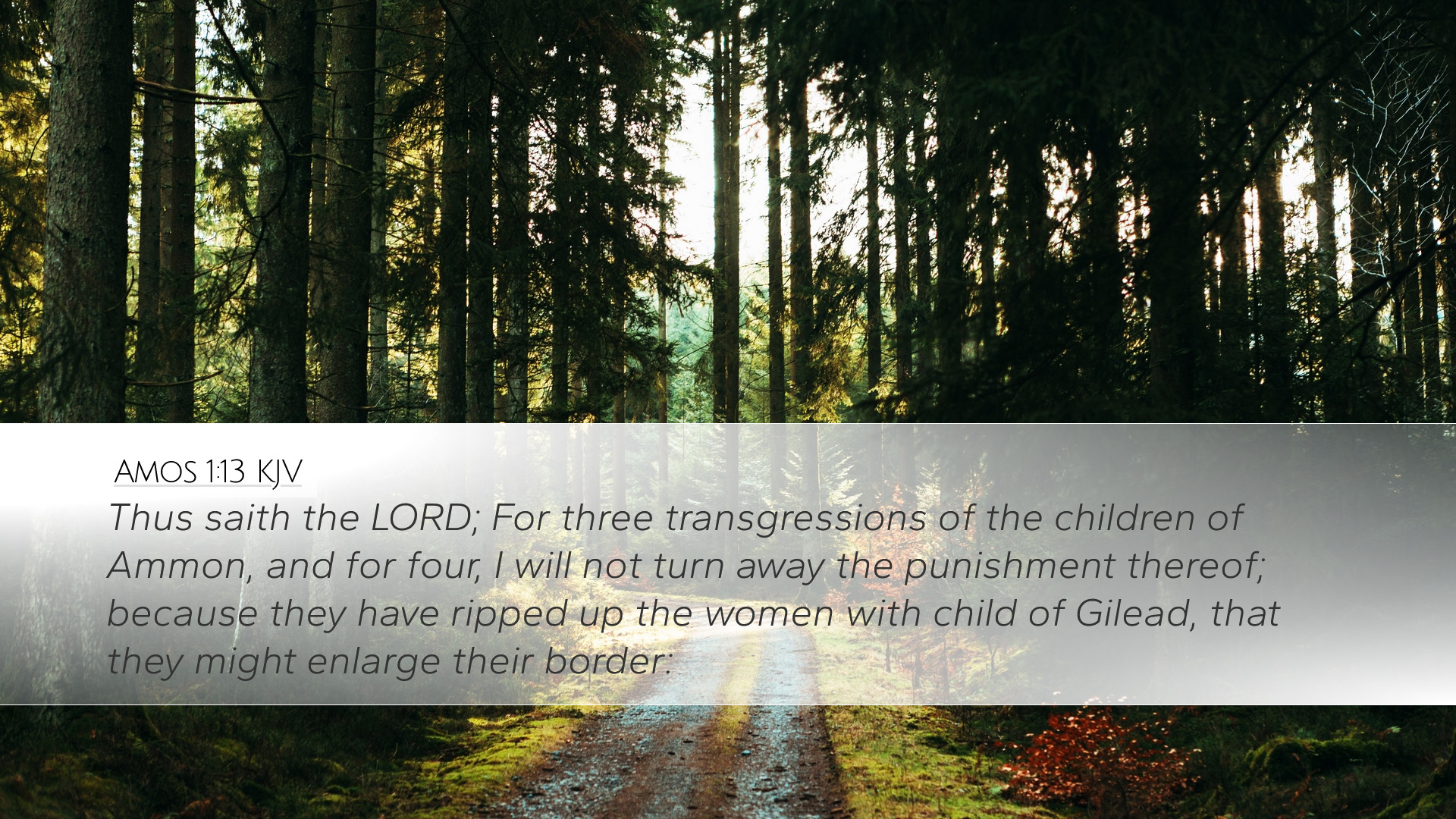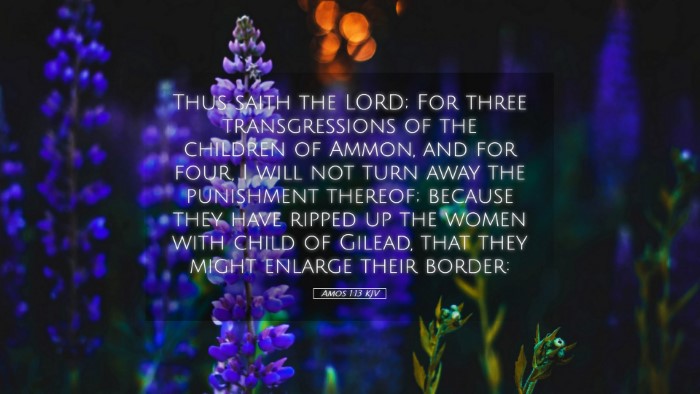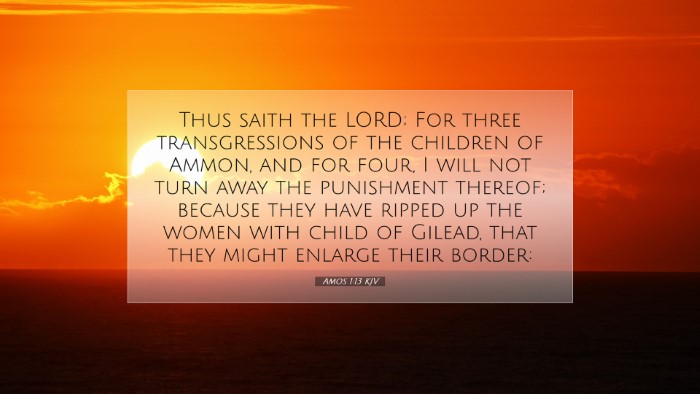Old Testament
Genesis Exodus Leviticus Numbers Deuteronomy Joshua Judges Ruth 1 Samuel 2 Samuel 1 Kings 2 Kings 1 Chronicles 2 Chronicles Ezra Nehemiah Esther Job Psalms Proverbs Ecclesiastes Song of Solomon Isaiah Jeremiah Lamentations Ezekiel Daniel Hosea Joel Amos Obadiah Jonah Micah Nahum Habakkuk Zephaniah Haggai Zechariah MalachiAmos 1:13
Amos 1:13 KJV
Thus saith the LORD; For three transgressions of the children of Ammon, and for four, I will not turn away the punishment thereof; because they have ripped up the women with child of Gilead, that they might enlarge their border:
Amos 1:13 Bible Commentary
Commentary on Amos 1:13
Verse: "Thus says the Lord: 'For three transgressions of the Ammonites, and for four, I will not revoke the punishment, because they have ripped open pregnant women in Gilead, that they might enlarge their border.'" (Amos 1:13, ESV)
Introduction
This verse exemplifies the prophetic judgment delivered by Amos against the Ammonites. The prophet Amos, a shepherd and gatherer of sycamore fruit, called by God to prophesy to Israel, shares a divine declaration that reveals God’s displeasure towards nations surrounding Israel, particularly focusing on the cruel acts of the Ammonites. The severity of their transgressions is poignantly highlighted through the specific mention of their actions against vulnerable populations.
Theological Context
The verse occurs in a section outlining the sins and subsequent judgments against several nations due to their sins, indicating that no people are exempt from accountability before God. The repetition of "for three transgressions and for four" serves as a rhetorical device emphasizing the overflowing iniquity of nations, suggesting that their transgressions have reached a climax that warrants divine intervention.
Commentary Insights
-
Matthew Henry's Commentary:
Henry expounds upon the repugnance of the actions committed by the Ammonites, emphasizing the moral outrage that God confronts. He notes that such brutality against pregnant women signifies a deep-seated wickedness and ambition for expansion at the cost of innocent lives. This act illustrates their utter disregard for human life and the covenantal ramifications of their actions, which was a recurring theme of judgment throughout the Old Testament.
-
Albert Barnes' Notes:
Barnes points out that the Ammonites' crime was not merely a military aggression but an abhorrent brutality that defied the sanctity of life. He emphasizes that this act stems from a desire to "enlarge their border," which reflects a larger theme of greed and expansionism devoid of ethical considerations. God’s judgment is portrayed as just and necessary, sending a strong warning regarding the consequences of inhumane actions.
-
Adam Clarke's Commentary:
Clarke clarifies the historical context of the Ammonite incursions, particularly how their actions were a violation of God’s moral law and how such violations demanded judicial retribution. He highlights the prophetic language as a means to call attention to the injustices occurring in Gilead and frames it within the larger narrative of God's sovereign rule over all nations. Clarke also discusses the implications of these judgments, which serve as a reminder to Israel about the seriousness of sin and the righteousness of God's character.
Moral and Ethical Considerations
The brutality against pregnant women challenges readers to reflect on the sanctity of life and the moral consequences of societal and national ambitions. It serves as an eternal reminder of the need for justice and the protection of the vulnerable, aligning with the broader biblical witness of caring for the marginalized and oppressed. The severity of God's judgment on the Ammonites also illustrates the notion that God's patience can wear thin in the face of relentless and egregious sin.
Application for Faith Communities
This verse prompts faith communities to consider how they address issues of violence, injustice, and exploitation within their own contexts. It invites pastors and leaders to advocate for life, dignity, and justice, reflecting on their responsibilities toward the marginalized and vulnerable in society. The call of Amos to repentance can resonate in contemporary settings where communities may grapple with moral transgressions similar to those faced by the Ammonites.
Conclusion
Amos 1:13 serves as a powerful caution against the dangers of moral corruption and the consequences of unchecked ambition. The text reinforces the view that divine judgment is a natural outcome of persistent disobedience and cruelty. This passage invites a deeper understanding of God's justice paired with His mercy, challenging readers to engage with their own societal realities. The enduring relevance of Amos's message calls for introspection, repentance, and a return to righteousness.


